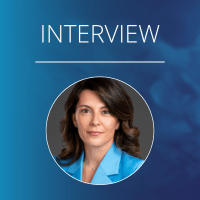Internal Treasury Relationships
By ComplexCountries
17/07/2023
“No man is an island”. The phrase comes from the 17th-century English poet, John Donne (it has since been used in a popular song….). Nowhere is this truer than in a modern enterprise.

Can’t get enough? Check out these latest items
 https://treasuryxl.com/wp-content/uploads/2016/04/Logo-Jacobs-Douwe-Egberts-500x500-e1468925512761.jpg
200
200
treasuryXL
https://treasuryxl.com/wp-content/uploads/2018/07/treasuryXL-logo-300x56.png
treasuryXL2024-04-25 11:12:522024-04-25 11:12:52Global Treasury and Data Analytics Intern @ Jacobs Douwe Egberts
https://treasuryxl.com/wp-content/uploads/2016/04/Logo-Jacobs-Douwe-Egberts-500x500-e1468925512761.jpg
200
200
treasuryXL
https://treasuryxl.com/wp-content/uploads/2018/07/treasuryXL-logo-300x56.png
treasuryXL2024-04-25 11:12:522024-04-25 11:12:52Global Treasury and Data Analytics Intern @ Jacobs Douwe Egberts https://treasuryxl.com/wp-content/uploads/2024/04/TIS-BLOGS-featured-2.png
200
200
treasuryXL
https://treasuryxl.com/wp-content/uploads/2018/07/treasuryXL-logo-300x56.png
treasuryXL2024-04-25 10:00:542024-04-22 09:51:28TIS Spring Magazine
https://treasuryxl.com/wp-content/uploads/2024/04/TIS-BLOGS-featured-2.png
200
200
treasuryXL
https://treasuryxl.com/wp-content/uploads/2018/07/treasuryXL-logo-300x56.png
treasuryXL2024-04-25 10:00:542024-04-22 09:51:28TIS Spring Magazine https://treasuryxl.com/wp-content/uploads/2024/04/Lanschot-kempen.png
200
200
treasuryXL
https://treasuryxl.com/wp-content/uploads/2018/07/treasuryXL-logo-300x56.png
treasuryXL2024-04-25 09:45:472024-04-25 09:45:47Treasury Funding Specialist @ van Lanschot Kempen
https://treasuryxl.com/wp-content/uploads/2024/04/Lanschot-kempen.png
200
200
treasuryXL
https://treasuryxl.com/wp-content/uploads/2018/07/treasuryXL-logo-300x56.png
treasuryXL2024-04-25 09:45:472024-04-25 09:45:47Treasury Funding Specialist @ van Lanschot Kempen https://treasuryxl.com/wp-content/uploads/2024/04/Paul-Expert-featured.png
200
200
treasuryXL
https://treasuryxl.com/wp-content/uploads/2018/07/treasuryXL-logo-300x56.png
treasuryXL2024-04-25 07:00:022024-04-17 11:56:47OECD BEPS and Transfer Pricing – Differentiating In-House Bank interest depending on Balance Sheet
https://treasuryxl.com/wp-content/uploads/2024/04/Paul-Expert-featured.png
200
200
treasuryXL
https://treasuryxl.com/wp-content/uploads/2018/07/treasuryXL-logo-300x56.png
treasuryXL2024-04-25 07:00:022024-04-17 11:56:47OECD BEPS and Transfer Pricing – Differentiating In-House Bank interest depending on Balance Sheet https://treasuryxl.com/wp-content/uploads/2024/03/Copy-of-Cobase-Template_BLOGS-featured.png
200
200
treasuryXL
https://treasuryxl.com/wp-content/uploads/2018/07/treasuryXL-logo-300x56.png
treasuryXL2024-04-24 07:00:382024-04-17 11:43:06Strategizing Finance Projects: Setting Priorities for Success
https://treasuryxl.com/wp-content/uploads/2024/03/Copy-of-Cobase-Template_BLOGS-featured.png
200
200
treasuryXL
https://treasuryxl.com/wp-content/uploads/2018/07/treasuryXL-logo-300x56.png
treasuryXL2024-04-24 07:00:382024-04-17 11:43:06Strategizing Finance Projects: Setting Priorities for Success https://treasuryxl.com/wp-content/uploads/2024/02/Francois-Template_BLOGS-Expert-featured-1.png
200
200
treasuryXL
https://treasuryxl.com/wp-content/uploads/2018/07/treasuryXL-logo-300x56.png
treasuryXL2024-04-23 07:00:502024-04-17 08:29:08RTGS, Instant Payments and the impact on Open Banking
https://treasuryxl.com/wp-content/uploads/2024/02/Francois-Template_BLOGS-Expert-featured-1.png
200
200
treasuryXL
https://treasuryxl.com/wp-content/uploads/2018/07/treasuryXL-logo-300x56.png
treasuryXL2024-04-23 07:00:502024-04-17 08:29:08RTGS, Instant Payments and the impact on Open Banking https://treasuryxl.com/wp-content/uploads/2024/04/Patricia-featured.png
200
200
treasuryXL
https://treasuryxl.com/wp-content/uploads/2018/07/treasuryXL-logo-300x56.png
treasuryXL2024-04-22 07:00:232024-04-15 06:28:07Interview | 5 questions for Patrícia Baptista Nabiço, Seasoned Treasury Professional
https://treasuryxl.com/wp-content/uploads/2024/04/Patricia-featured.png
200
200
treasuryXL
https://treasuryxl.com/wp-content/uploads/2018/07/treasuryXL-logo-300x56.png
treasuryXL2024-04-22 07:00:232024-04-15 06:28:07Interview | 5 questions for Patrícia Baptista Nabiço, Seasoned Treasury Professional https://treasuryxl.com/wp-content/uploads/2024/01/Template_VACANCY-featured.png
200
200
treasuryXL
https://treasuryxl.com/wp-content/uploads/2018/07/treasuryXL-logo-300x56.png
treasuryXL2024-04-19 07:00:432024-04-18 15:27:36Vacancy | Treasury Analyst – Luxembourg
https://treasuryxl.com/wp-content/uploads/2024/01/Template_VACANCY-featured.png
200
200
treasuryXL
https://treasuryxl.com/wp-content/uploads/2018/07/treasuryXL-logo-300x56.png
treasuryXL2024-04-19 07:00:432024-04-18 15:27:36Vacancy | Treasury Analyst – Luxembourg https://treasuryxl.com/wp-content/uploads/2024/04/Steven-interview.png
200
200
treasuryXL
https://treasuryxl.com/wp-content/uploads/2018/07/treasuryXL-logo-300x56.png
treasuryXL2024-04-18 07:00:072024-04-18 10:08:28Why Steven decided to explore the World of Treasury
https://treasuryxl.com/wp-content/uploads/2024/04/Steven-interview.png
200
200
treasuryXL
https://treasuryxl.com/wp-content/uploads/2018/07/treasuryXL-logo-300x56.png
treasuryXL2024-04-18 07:00:072024-04-18 10:08:28Why Steven decided to explore the World of Treasury



However, in many ways, modern companies can be difficult places to collaborate and work with our colleagues: conflicting priorities and objectives make it challenging to obtain the resources and help we need to do our jobs. This goes from the traditional problem of sales teams who want to increase payment terms to improve revenue, to IT departments, for whom treasury’s needs are often far from being a top priority.The call took place before the failure of First Republic Bank, and its acquisition by JPMorgan.
In our calls, participants regularly complain of the challenges in getting the help and cooperation of other functions, and the low priority for resources which comes from being a cost centre. We organised this call to go through the challenges people face, and see which actions work best.
The functions treasurers have issues with are fairly consistent: sales, procurement, tax, accounting, FP&A, legal, IT. The single issue which came through the most was KPIs and compensation: if treasury’s risk management recommendations get in the way of achieving a KPI, that can mean a reduction in personal income for someone.
If there was a simple solution to this problem, we would have all implemented it by now. But some common themes emerged:
Bottom line: in any human organisation, work can only be achieved with and through other people. In companies, those people often have conflicting objectives – objectives which can affect how much they earn, or even whether they keep their jobs. All functions in a company are competing for scarce resources: not everyone can be satisfied.
Managing all these relationships is an art, not a science. There is no simple, universally applicable solution – after all, you are dealing with people. But communication always helps: please read the many situations below. They are very informative.
This report was produced by Monie Lindsey, based on a Treasury Per call chaired by Damian Glendinning.
To access this report
Access to the full report is available to Premium Subscribers of ComplexCountries. Please log in on the website of ComplexCountries to access the download.
Please contact ComplexCountries to find out about their subscription packages.